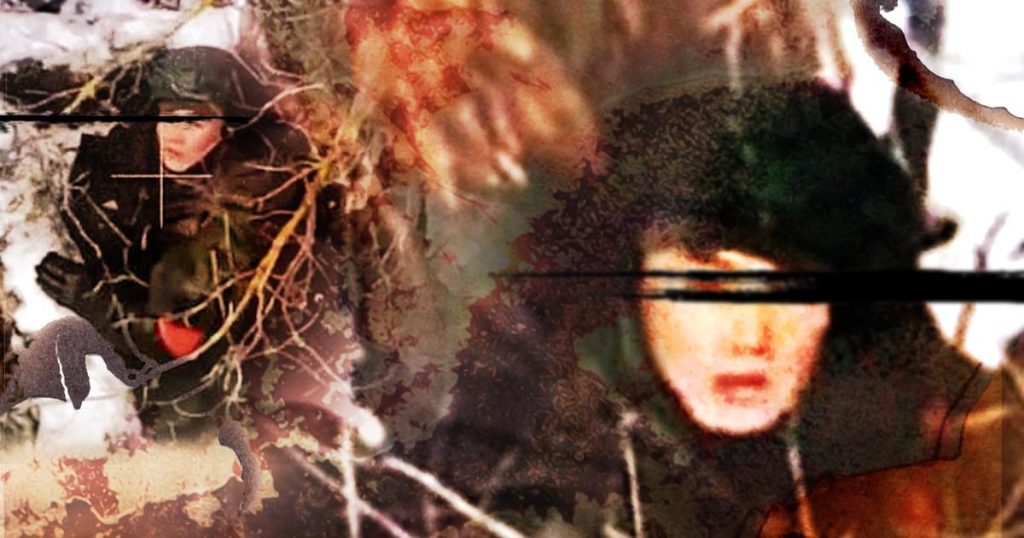The discovery of a North Korean soldier’s diary in the Kursk region of Russia offers a chilling glimpse into the mindset of foreign troops bolstering Russia’s war effort in Ukraine. Gyong Hong Jong, a 27-year-old special forces soldier, meticulously documented his unwavering loyalty to North Korean leader Kim Jong Un, echoing Communist propaganda and emphasizing unwavering obedience, even unto death. His writings betray a soldier indoctrinated to view the conflict through an ideological lens, devoid of any mention of Russia’s justifications for the invasion. Instead, Jong’s focus remains fixed on fulfilling his duty to his Supreme Commander, highlighting the extent of North Korea’s ideological control over its deployed troops. The diary also reveals a personal side, with Jong wishing a friend a happy birthday, a poignant reminder of the human cost of this geopolitical conflict.
Jong’s presence in Kursk, along with other North Korean troops, underscores a disturbing trend in the ongoing war: the deployment of foreign fighters to supplement Russia’s depleted forces. These soldiers, often ill-equipped and poorly trained, are reportedly used as cannon fodder in brutal assaults against Ukrainian positions, a tactic chillingly referred to as a “meat grinder.” Jong’s diary includes a crude sketch depicting tactics for countering drones, revealing the constant threat posed by Ukrainian aerial surveillance and attacks. His notes also detail a “live bait” tactic where a soldier stands motionless to lure a drone while others open fire, underscoring the desperate measures employed in this brutal conflict. The diary further reveals that Jong’s deployment was a punishment for a minor offense, highlighting the harsh disciplinary measures within the North Korean military.
The discovery of Jong’s diary also sheds light on Russia’s attempts to conceal the presence of North Korean troops. False documents found on Jong’s body identified him as a citizen of the remote Tuva republic in Siberia, a likely attempt to mask the extent of foreign involvement in the conflict. This deception, alongside reports of Russian forces burning the faces of deceased North Korean soldiers, underscores the Kremlin’s desire to maintain a veneer of domestic support for the war effort. The involvement of North Korean troops in Kursk also highlights the evolving dynamics of the conflict, with reports suggesting their numbers have been substantial, potentially reaching into the thousands. Their presence represents a significant development, raising concerns about the escalating internationalization of the war.
Ukraine’s Special Operations Forces (SOF) have confirmed engagements with North Korean troops in the region, capturing equipment and documenting their activities. However, the SOF emphasizes their focus on the broader mission of liberating Ukraine, regardless of the enemy’s nationality. Their determination is fueled by a commitment to defend their homeland, protect civilians, and secure the future of their families. The presence of North Korean troops, although a significant development, does not deter the Ukrainian forces from their objective of repelling the invasion and reclaiming their territory. The SOF’s statements reflect a broader understanding of the conflict, recognizing that the fight is against an invading force, irrespective of its composition.
The incursion into Kursk represents a bold tactical maneuver by Ukrainian forces, marking the first time foreign troops have captured ground within Russia’s recognized borders since World War II. This action, mirroring the tactics employed by Special Forces units during the earlier conflict, demonstrates Ukraine’s willingness to take the fight to the enemy, even across international boundaries. The initial gains of approximately 1,400 square kilometers, though later reduced to 800, signify the impact of these operations. The fighting in Kursk also highlights the ongoing nature of the conflict, with reports of Ukrainian counter-offensives and persistent attacks by Russian and North Korean forces.
The situation in Kursk exemplifies the complex and evolving nature of the conflict in Ukraine. The deployment of North Korean troops, the attempts to conceal their presence, and the brutal tactics employed all contribute to a grim picture of a war with far-reaching consequences. The discovery of Jong’s diary provides a rare and disturbing insight into the human cost of this conflict, highlighting the individual stories often lost amidst the larger geopolitical narrative. The ongoing fighting in the region underscores the continuing challenges faced by Ukraine as it defends its sovereignty and seeks to bring an end to the war.











